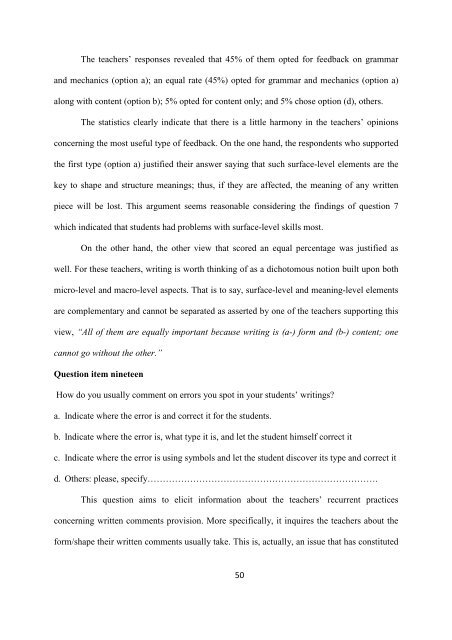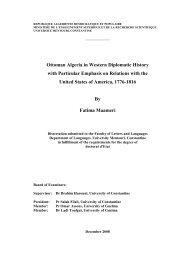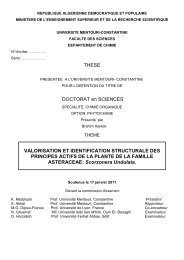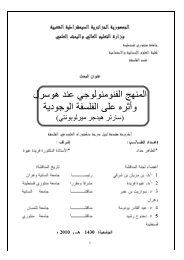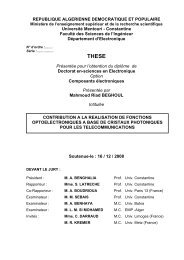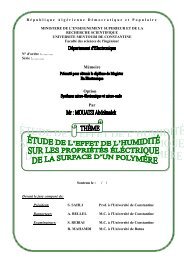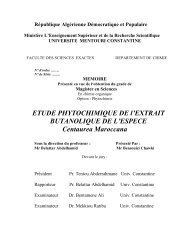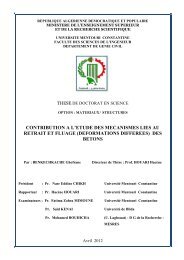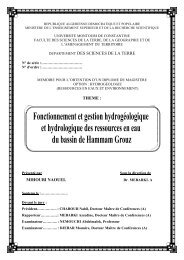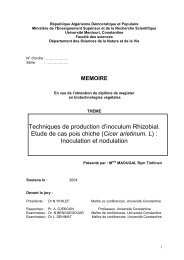Students' Response to Teachers' Feedback on Writing The Case of ...
Students' Response to Teachers' Feedback on Writing The Case of ...
Students' Response to Teachers' Feedback on Writing The Case of ...
You also want an ePaper? Increase the reach of your titles
YUMPU automatically turns print PDFs into web optimized ePapers that Google loves.
<strong>The</strong> teachers’ resp<strong>on</strong>ses revealed that 45% <strong>of</strong> them opted for feedback <strong>on</strong> grammar<br />
and mechanics (opti<strong>on</strong> a); an equal rate (45%) opted for grammar and mechanics (opti<strong>on</strong> a)<br />
al<strong>on</strong>g with c<strong>on</strong>tent (opti<strong>on</strong> b); 5% opted for c<strong>on</strong>tent <strong>on</strong>ly; and 5% chose opti<strong>on</strong> (d), others.<br />
<strong>The</strong> statistics clearly indicate that there is a little harm<strong>on</strong>y in the teachers’ opini<strong>on</strong>s<br />
c<strong>on</strong>cerning the most useful type <strong>of</strong> feedback. On the <strong>on</strong>e hand, the resp<strong>on</strong>dents who supported<br />
the first type (opti<strong>on</strong> a) justified their answer saying that such surface-level elements are the<br />
key <str<strong>on</strong>g>to</str<strong>on</strong>g> shape and structure meanings; thus, if they are affected, the meaning <strong>of</strong> any written<br />
piece will be lost. This argument seems reas<strong>on</strong>able c<strong>on</strong>sidering the findings <strong>of</strong> questi<strong>on</strong> 7<br />
which indicated that students had problems with surface-level skills most.<br />
On the other hand, the other view that scored an equal percentage was justified as<br />
well. For these teachers, writing is worth thinking <strong>of</strong> as a dicho<str<strong>on</strong>g>to</str<strong>on</strong>g>mous noti<strong>on</strong> built up<strong>on</strong> both<br />
micro-level and macro-level aspects. That is <str<strong>on</strong>g>to</str<strong>on</strong>g> say, surface-level and meaning-level elements<br />
are complementary and cannot be separated as asserted by <strong>on</strong>e <strong>of</strong> the teachers supporting this<br />
view, “All <strong>of</strong> them are equally important because writing is (a-) form and (b-) c<strong>on</strong>tent; <strong>on</strong>e<br />
cannot go without the other.”<br />
Questi<strong>on</strong> item nineteen<br />
How do you usually comment <strong>on</strong> errors you spot in your students’ writings?<br />
a. Indicate where the error is and correct it for the students.<br />
b. Indicate where the error is, what type it is, and let the student himself correct it<br />
c. Indicate where the error is using symbols and let the student discover its type and correct it<br />
d. Others: please, specify………………………………………………………………….<br />
This questi<strong>on</strong> aims <str<strong>on</strong>g>to</str<strong>on</strong>g> elicit informati<strong>on</strong> about the teachers’ recurrent practices<br />
c<strong>on</strong>cerning written comments provisi<strong>on</strong>. More specifically, it inquires the teachers about the<br />
form/shape their written comments usually take. This is, actually, an issue that has c<strong>on</strong>stituted<br />
50


